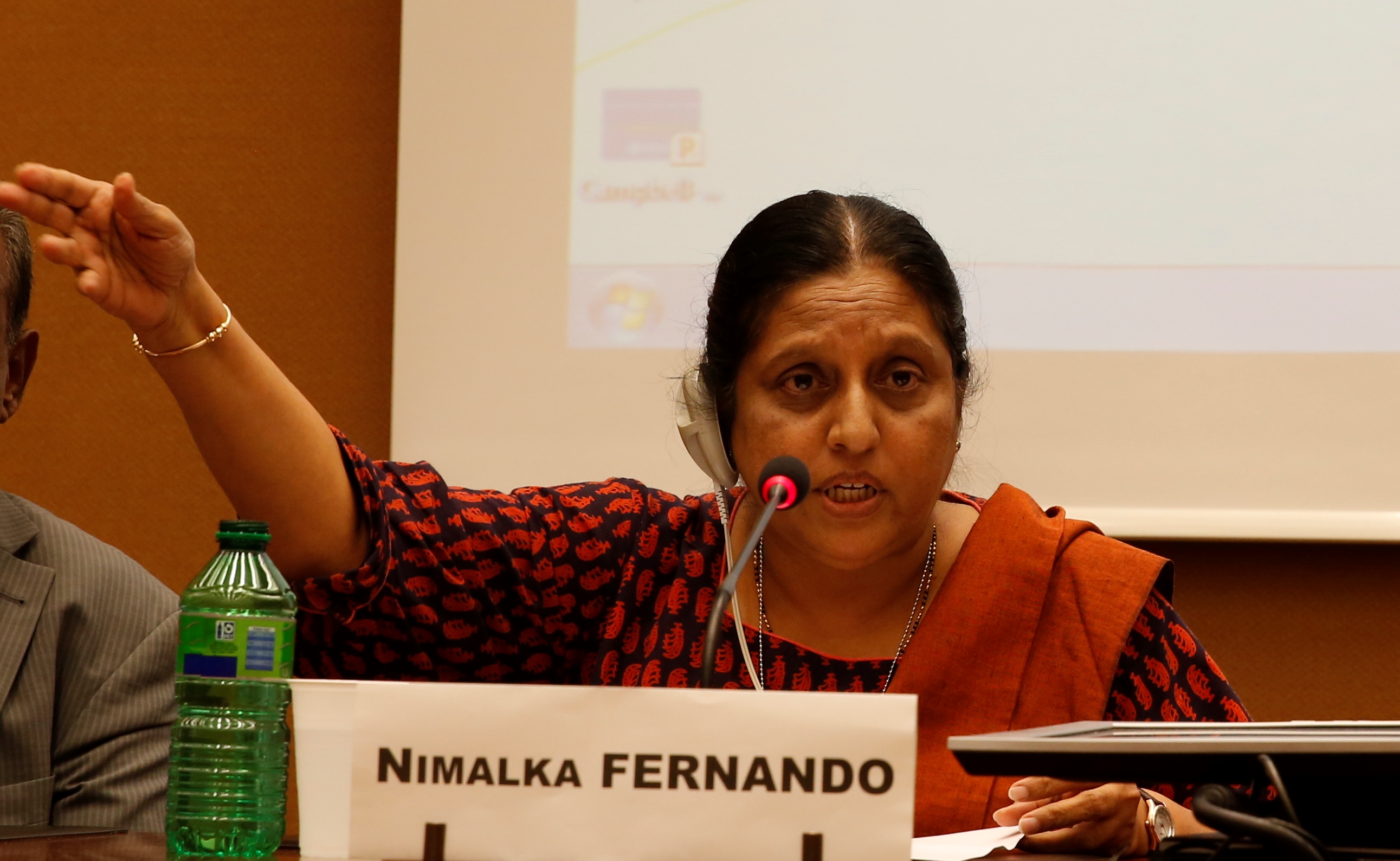( Dr Nimalka Fernando who heads IMDAR ©sunanda deshapriya)
In a oral statement made after the High Commissioner Zeid’s report on progress made by Sri Lanka in implementing the Unhrc resolution 30/1 IMDAR headed by Dr nimalka Fernando said that ” The slow progress in returning of lands, failure to facilitate security sector reform including the dismantling of units and structures allegedly responsible for grave violations in the past, continuing culture of impunity and surveillance, existence of the draconian Prevention of Terrorism Act (PTA), harassment of Tamils returning home, the delay in releasing political prisoners, failure to initiate a public campaign to support its transitional justice process continue to challenge the political commitment of the Government.”
The statement follows:
IMADR Oral Statement: 32nd session of the Human Rights Council/ 29 June 2016.
Thank you Mr. President,
Together with Rights Now Collective for Democracy, Association for Family Members of the Disappeared (FOD), Right to Life, Campaign for Free & Fair Election (CaFFE) and other networks in Sri Lanka, we appreciate the continuing engagement of the High Commissioner and his office for the implementation of the Human Rights Council resolution 30/1.
We congratulate the Government of Sri Lanka (GoSL) for co-sponsoring this resolution which addresses issues related to reconciliation, accountability and grave human rights violations. Their engagement with the UN, the international community and the civil society both inside and outside the country demonstrates a new departure from the past.
We recognise the progress enunciated in the High Commissioner’s oral update. In a country which has a long drawn legacy of involuntary disappearances, the ratification of the International Convention for the Protection of All Persons from Enforced Disappearance (ICPPED) together with the efforts taken to draft corresponding legislation and to establish the Office of Missing Persons (OMP) provide an enabling environment. On the other hand, the recent emergence of ‘white vans’ and the prevailing surveillance culture in the North and East pose real threats to witnesses and victims including local NGOs.
The slow progress in returning of lands, failure to facilitate security sector reform including the dismantling of units and structures allegedly responsible for grave violations in the past, continuing culture of impunity and surveillance, existence of the draconian Prevention of Terrorism Act (PTA), harassment of Tamils returning home, the delay in releasing political prisoners, failure to initiate a public campaign to support its transitional justice process continue to challenge the political commitment of the Government.
We endorse the call by the High Commissioner to pursue a comprehensive strategy for a better coordination within the Government and to further facilitate a concerted public information campaign.
We call upon the Government to adopt a national policy on NGOs to affirm principles of freedom of association and assembly, and swiftly remove practices of reporting and checking of NGO activities by the Criminal Investigation Department (CID) especially in the North, East and plantation sector.
Constitutional reform process should address a lasting political solution to the ethnic problem by envisioning a power sharing model.
Last but not least, we call upon the Government to abide by the recent promise made by the Foreign Minister that the level of international participation in transitional justice mechanisms to be decided upon in consultation with victims and affected communities. We request the international community to continue their engagement for the successful implementation of the resolution 30/1.
Thank you Mr. President.
